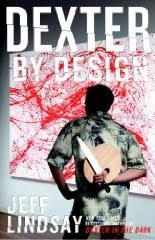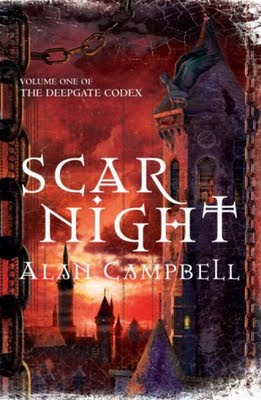
My world view is limited by the data that comes to me. I have my tiny slice of reality, a few friends, my work, then there are movies, news, documentaries, the Internet and so on. You will notice that I placed them in a certain order, it is the order that to me seems to go from more bullshit and less information to more information. I never believed the expression "
Truth is stranger than fiction", so lets set the slice of reality aside. And, being first on my list... full of bullshit :)
Movies teach me a lot, but there is just as much untruth and deceit in them as there is stuff worth knowing. News are focused on a part of life that normally doesn't interest me, but they still have a higher percent of useful information. Then there are the documentaries, stuff from Discovery Channel and the likes. Well, I have mixed feelings about those. There are things that they teach me and they do it in a pleasant manner, yet, by the time they end, I feel like there is so much more that I wanted to know and that it all just stopped when it got interesting. On further analysis, it seems the quantum of information in an hour of film was something I could blog in two or three paragraphs.
And then there is the Internet. It is bursting with information, if only I knew where to look and only if I had the discipline of researching, summarising and storing that information. I am working on that, even this blog is used to store what I find, but I am still only an amateur. There is something that attracted me a while ago, something called
Open Courseware. There were courses from the largest universities, freely available on the net. However, they left me feeling disappointed as they were mostly text, the few that were in media format were mostly audio and, in the end, they were only poor recordings of classroom courses, sounds of scribling on the blackboard included.
Enter
The Teaching Company, a company that produces recordings of lectures by nationally top-ranked university professors as well as high-school teachers. The lectures are well done, they feature some guy or gal that present the information without having to write stuff on blackboards. If anything is to be shown, it will be a computer slide or animation, while the details on spoken information are added to the screen (for example the names of people). Wonderful stuff, only it is not free.
If you go to
the official site you will find courses on just about anything, priced at around 35$ per download and 70$ per DVD if they are "on sale" and the rest of them going to about 250$, with a range of 20-40 lectures per course. Of course, there is the option of looking for "
TTC torrent" on Google and see what you find there. For the people in Africa that just got an Internet cable installed, I mean.
I had the luck to start with linguistics (
Understanding Linguistics: The Science of Language by John McWhorter), lucky not because linguistics is so interesting, but because John McWhorter was really charismatic and had a very well constructed set of lectures. And because linguistics is an interesting topic, at least at the introductory level of this course. It was funny, too, the guy is what I imagine a typical New Yorker to be. He is black with a Scottish name, he talks a lot of Broadway plays and old movies, he is socially astute; very cosmopolitan.
Then I went for astronomy (
New Frontiers: Modern Perspectives on Our Solar System by Frank Summers). If you like those National Geographic documentaries about the solar system, you will love this. Towards the end it got detailed in a bad way, but only compared with the beginning of the course, which was really well done. The lectures are about the Solar System, from the standpoint of a modern astronomer, in light of all the recent discoveries. Also, a very well made point about why the structure of the solar system was revised and Pluto got demoted. At the end it talks of other star systems and what are the methods to detect and study them.
Not all the courses are so good, though. I had the misfortune of trying out
Superstring Theory: The DNA of Reality by Sylvester James Gates, Jr. The guy is a black man in his late fifties who tries to explain Superstring theory without using any mathematics. He starts by repeating a lot of what he said in previous lectures and, indeed, in the same one earlier on, then goes asking these stupid questions that repeat what he said again. Something like "As I said in a previous lecture this and this and this happened. But why did this and this and this happen?". Ugh. If it was only about that, I would have finished watching the course, but it was something completely unstructured, boring and dragging. After 12 lectures out of 24 I knew nothing about string theory, except vague things like "if I imagine a ball that goes towards another ball and they shout at each other and the waves make other balls while the previous balls disappear but wait they appear again...". What I knew is that I had to stop watching. Sorry, Mr. Gates, lecturing... just not your thing. Stick to short appearances on Nova PBS shows.
Right now I am on
Building Great Sentences: Exploring the Writer's Craft by Brooks Landon. It talks about constructing good sentences in order to improve one's writing. I have the feeling that the guy uses more detail than necessary. Like when he explains a concept he has to give at least 5 examples, when 2 or 3 would have been enough. But then again, maybe I am wrong. I will have to finish the course to give you a definite opinion.
Next on my list:
Quantum Mechanics: The Physics of the Microscopic World by Benjamin SchumacherUnderstanding Genetics: DNA, Genes, and Their Real-World Applications by David SadavaIntroduction to Number Theory by Edward B. BurgerUnderstanding the Brain by Jeanette NordenDoes all this make me a very smart person? Not really. Remember that most of these are introductory courses. They do not contain exercises or books that you need to read, nor do they require a very high level of previous knowledge in order to understand them. They are, pure and simple, like those Discovery Channel shows, only they don't end when they get interesting and they are not so full of bullshit. After watching one of these courses (or, indeed, listening to them as podcasts while you are going to work) you will have an idea on where to go digging deeper for the topics that interest you.
Good learning!
 It seems that I started William Gibson's the Bridge trilogy in reverse order. I finished reading All Tomorrow's Parties and, before I could blog it, I started reading Idoru and realized that it was set in the same universe and had some of the same characters. And this only to find out by Wiki'ing that there is a third (and first) book in the series.
It seems that I started William Gibson's the Bridge trilogy in reverse order. I finished reading All Tomorrow's Parties and, before I could blog it, I started reading Idoru and realized that it was set in the same universe and had some of the same characters. And this only to find out by Wiki'ing that there is a third (and first) book in the series.







